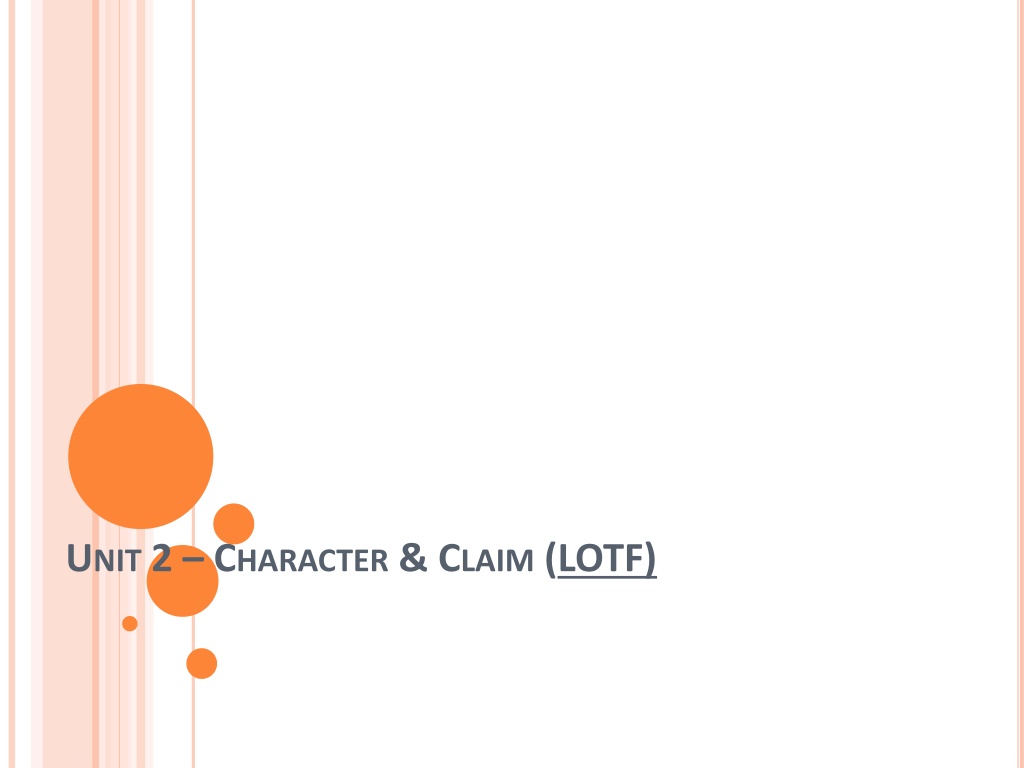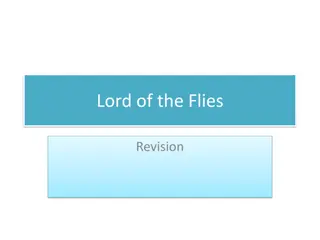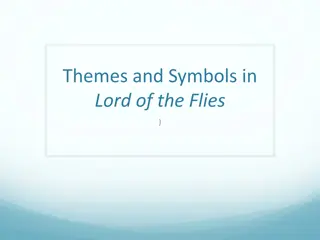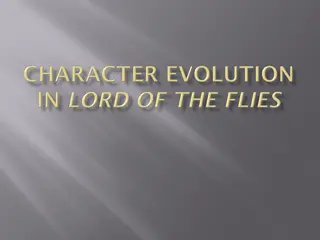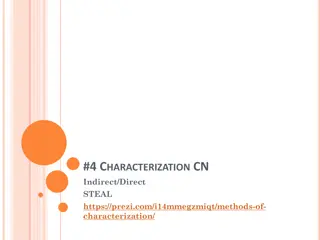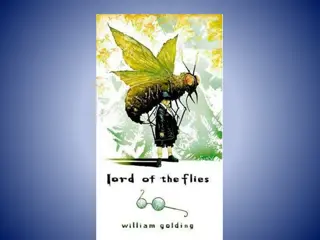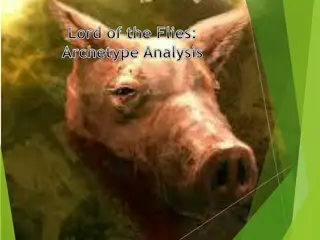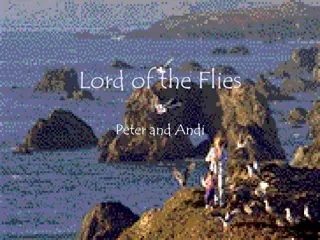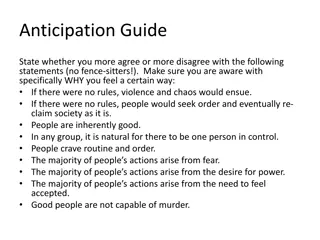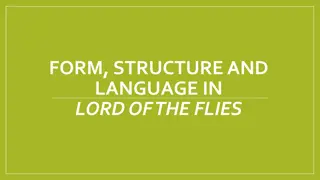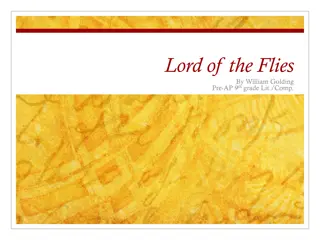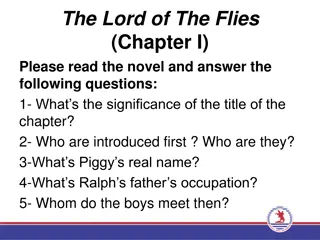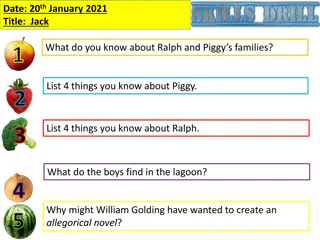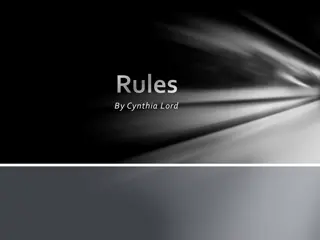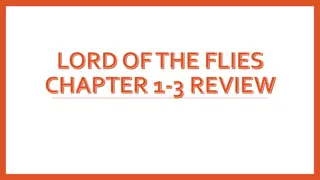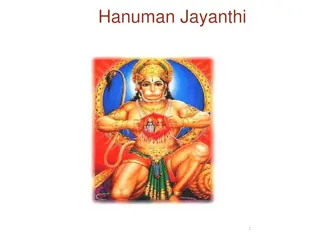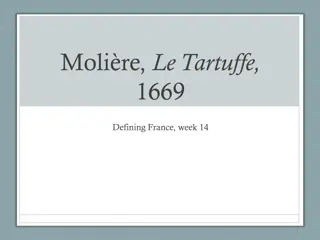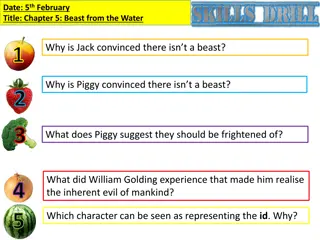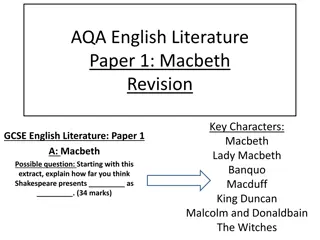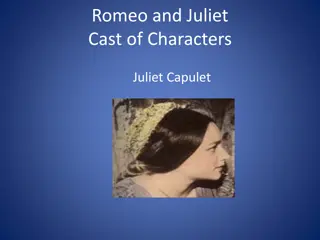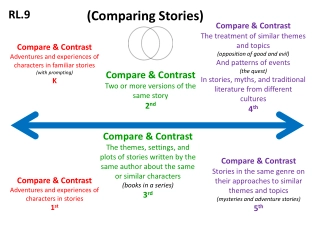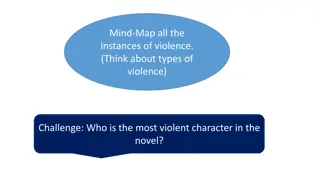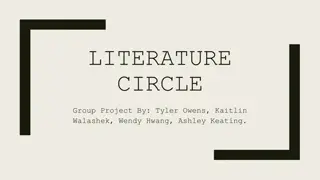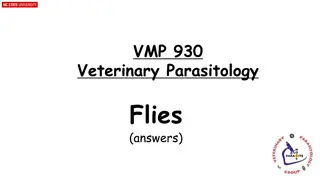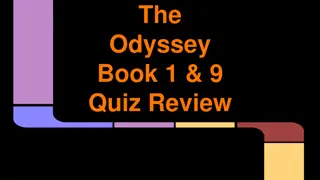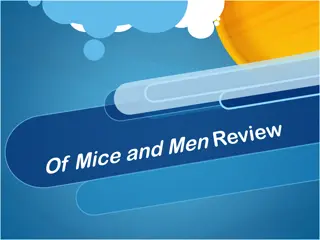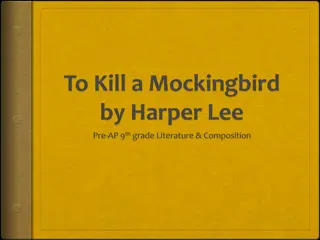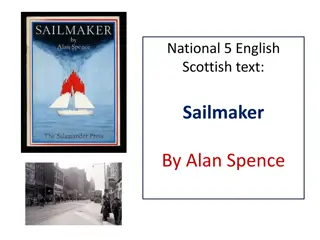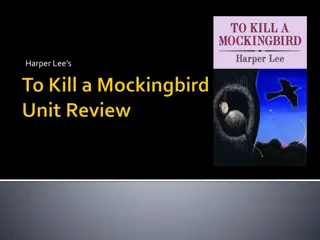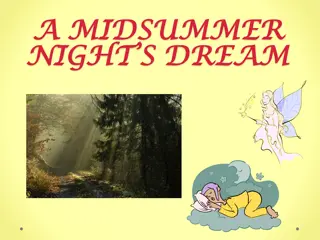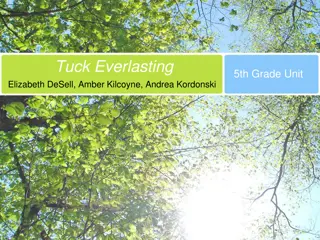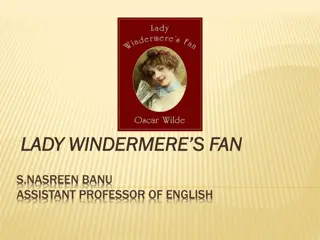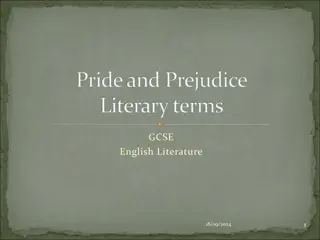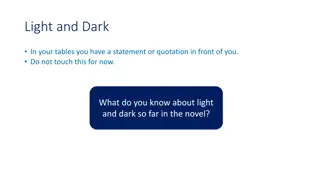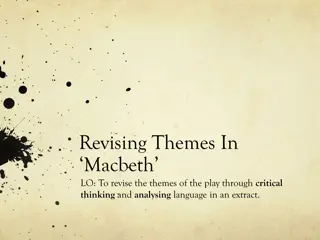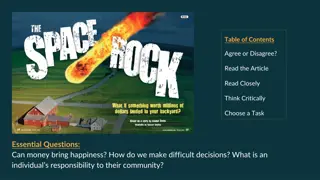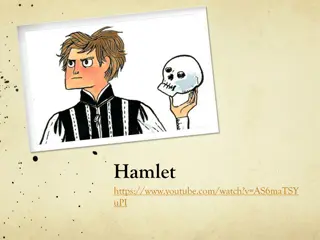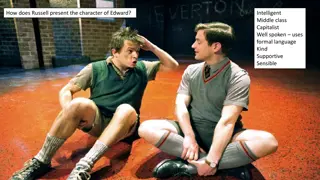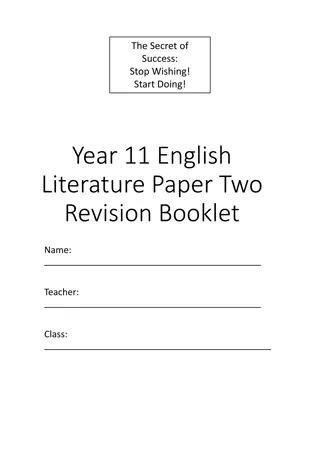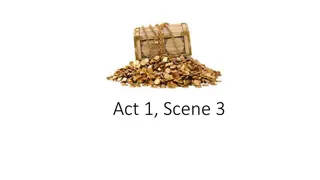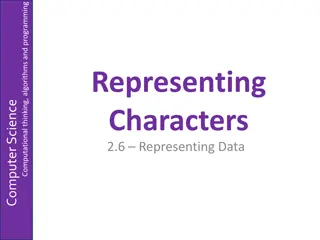Analysis of Characters and Themes in "Lord of the Flies" Unit
Explore the character development and key themes in the "Lord of the Flies" unit, set on a deserted island with British schoolboys. Delve into the challenges they face as they struggle for survival, leadership, and societal order, reflecting the darker aspects of human nature.
Download Presentation

Please find below an Image/Link to download the presentation.
The content on the website is provided AS IS for your information and personal use only. It may not be sold, licensed, or shared on other websites without obtaining consent from the author. Download presentation by click this link. If you encounter any issues during the download, it is possible that the publisher has removed the file from their server.
E N D
Presentation Transcript
TABLE OF CONTENTS Anticipation Guide Life raft Activity Lord of the Flies Intro Characterization CN Close Reading CN Chapter 1 Questions Chapter 2 Questions Chapter 3 Questions Chapter 4 Questions 1. 2. 3. 4. 5. 6. 7. 8. 9. 10. Chapter 5 Questions 11. Chapter 6 Questions 12. Chapter 7 Questions 13. Chapter 8 Questions 14. Symbol Chart 15. Chapter 9 Questions 16. Chapter 10 Questions 17. Chapter 11-12 Questions - Socratic Seminar
DIRECTIONS For each of the following statements, compose one well-written sentence reacting to the statement. Ex. Everyone in every situation should always be treated equally. Sometimes people have different needs and treating everyone the same in every situation might even be unfair in certain situations.
#1 ANTICIPATION GUIDE Groups should only have one leader. Everyone in a group should get an equal vote in decision making. Children are capable of taking care of themselves without adult supervision. Superstitions should be believed in and followed. If a leader orders you to hurt someone, you should do it. Food is more important than shelter. 1. 2. 3. 4. 5. 6.
STORY SYNOPSIS Set in mid 1940 s when Europe was engulfed in war. A plane carrying British school boys ages 6-12 is mistaken for a military craft and shot down over the South Pacific. There are no adult survivors. The boys are intelligent, well-to-do children the sons of aristocratic families that run society and government who had been evacuated from a battle zone. The story follows the boys survival on the island.
SETTING The action takes place on a tiny coral island in the South Pacific during a war in which an atomic bomb may have been used. Edenic The weather is hot and sunny. Although the island is uninhabited except for the boys who survived the plane crash, it offers necessities to support life, including fresh water, fruit, and game in the form of pigs. The island has a forest, two small mountains, and a sandy beach.
CHARACTERS When the boys first gather on the island they appear a very varied group, yet by the end they all seem very similar.
CHARACTERS Ralph Jack Piggy Simon Roger SamnEric Choir Boys Littluns
SYMBOLS Scar Conch & Ralph Fire Sea Rock Pighunt Beast Piggy s glasses & Piggy Lord of the Flies Creepers Jack Simon Roger Samnn eric
THEMES/TOPICS Loss of innocence Fear is all controlling Power Nature of good vs. nature of Evil Reason vs. Destruction Civilization vs. Savagery Ignorance vs. Knowledge Unknown vs. Known, Blindness vs. Sight, Dark vs. Light)
THE MEANING OF THE TITLE Lord of the Flies = Beelzebub (god of the fly, host of the fly) Beelzebub is often used as another name for Satan
FACTS ABOUT THE NOVEL Rejected 21 times before it was published It was Golding s first novel- published in 1954 Not successful until the early 1960 s On the American Library Association s list of the 100 Most Frequently Challenged Books of 1990-2000.
WILLIAM GOLDING British novelist Born on September 19, 1911, died 1993 Studied Science and English at Oxford Fought in Royal Navy during WWII Participated in invasion of Normandy on D-Day At war s end, returned to teaching and writing Earned the Nobel Prize in Literature
GOLDINGS WORLD WWII 1939- 1945 The fall of France to Nazi Germany in 1940 Britain feared an invasion and evacuated children to other countries 1940 - A German U-Boat torpedoed a British ship carrying children, killing the boys, thus suspending the oversees evacuation program
INSPIRATION Golding once allowed his class of boys total freedom in a debate, but had to intervene as mayhem soon broke out Experiences in war Critical response to Coral Island by R.M. Ballantyne: Ballantyne's story recounts the adventures of three British boys--Ralph, Jack, and Peterkin--who survive a shipwreck and create their own little society on an island where pigs run wild Philosophical questions about human nature
ON WRITING LORD OF THE FLIES It was simply what seemed sensible for me to write after the war when everyone was thanking God they weren t Nazis. I d seen enough to realize that every single one of us could be Nazis. --William Golding The theme is an attempt to trace the defects of society back to the defects of human nature. --William Golding
LITERALVS. FIGURATIVE Lord of the Flies has been called a fable in which the characters are symbols for abstract ideas. On a literal level, Lord of the Flies deals with what happens to a group of boys stranded on an island with no adult supervision. On a symbolic level, Lord of the Flies investigates what happens to civilized people when the structures of civilization disappear.
LENSESOFINTERPRETATION social (the study of natural man s behavior) political (critique of Western governments) psychological/ psychoanalytical (the power of human instincts) moral/ religious (a modern version of the biblical fall).
THE IDEA All human beings have a dark side that can cause the breakdown of individual or community moral standards if this dark side gains sway over reason and right thinking. This is a common motif in literature, occurring in short stories, novels, and poems. Examples of other works with this theme are William Shakespeare s Macbeth, and Arthur Miller s The Crucible.
PHILOSOPHICAL INFLUENCES Rousseau s Noble Savage Theory: 18th century French writer Jean-Jacques Rousseau wrote about the noble savage living in nature, uncorrupted by civilization. Golding attacks Rousseau s idea (a) that society corrupts humans (b) that humans in their natural state are rational and good.
PHILOSOPHICAL INFLUENCES John Hobbes English Philosopher: 1588- 1679 Man is by nature selfishly individualistic Man constantly at war with other men Fear of violent death is sole motivation to create civilizations Men need to be controlled by absolute sovereignty to avoid brutish behavior
GOLDINGS LITERARY TECHNIQUE Allegory: A story in which the characters, settings, and events stand for an abstract or moral concepts. Symbol: A person, place, thing, or event that stands both for itself and for something beyond itself. Ex. A log becomes the throne of the ruler, or chief; a conch, the emblem of democracy; a fist fight, a military battle; an island, the whole world Characters- The characters and the action have several layers of meaning, although readers can enjoy the novel as an adventure story on its basic, literal level Foreshadowing: The use of clues to hint at what is going to happen later in the plot.. Microcosm: (Small world) A small, representative system having analogies to a larger system in constitution, configuration, or development.
